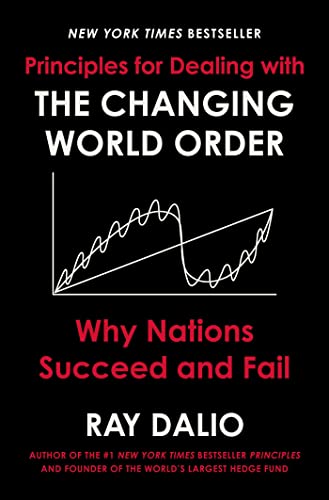Sublime
An inspiration engine for ideas
Roosevelt was just getting started. In 1903 the Dominican Republic’s finances collapsed. Its president, Carlos Morales, intimated that he would welcome annexation by the United States—the second time that country had offered itself up. A decade earlier, Roosevelt would have jumped at Morales’s offer. But now, exhausted by the Philippine War, he was
... See moreDaniel Immerwahr • How to Hide an Empire
In the post-war period, much of the non-communist world was opened up to US domination by tactics of this sort. This became the method of choice to fight off the threat of communist insurgencies and revolution, entailing an anti-democratic (and even more emphatically anti-populist and anti-socialist/communist) strategy on the part of the US that pu
... See moreDavid Harvey • A Brief History of Neoliberalism
Principles for Dealing with the Changing World Order: Why Nations Succeed and Fail
amazon.com
In the South China Sea or near Japan, the Portuguese were much more cautious. Here they found a niche as long-distance traders, convenient middlemen for a Ming Empire that disliked overseas activity by its own subjects and refused direct commercial relations with Japan.
John Darwin • After Tamerlane: The Rise and Fall of Global Empires, 1400-2000
American Diplomacy • The Ambassadors:Thinking About Diplomacy from Machiavelli to Modern Times | American Diplomacy Est 1996
The Truman Doctrine articulated a willingness to provide economic and military aid to Western European countries under pressure; Greece and Turkey were early recipients. The Marshall Plan, named for President Truman’s secretary of state George Marshall and announced at Harvard in June 1947, in what is arguably the most significant commencement spee
... See moreRichard Haass • The World
A most remarkable diplomatic initiative, known as the Iwakura Mission, was launched. Senior Japanese diplomats voyaged around the world to establish new diplomatic relations with Europe and the United States and to study best practices abroad as the basis for Japanese reforms in many key areas, including the structure of government, central banking
... See moreJeffrey D. Sachs • The Ages of Globalization: Geography, Technology, and Institutions
The paper served as a primer on the administration’s foreign
Michael B. Oren • Ally: My Journey Across the American-Israeli Divide
